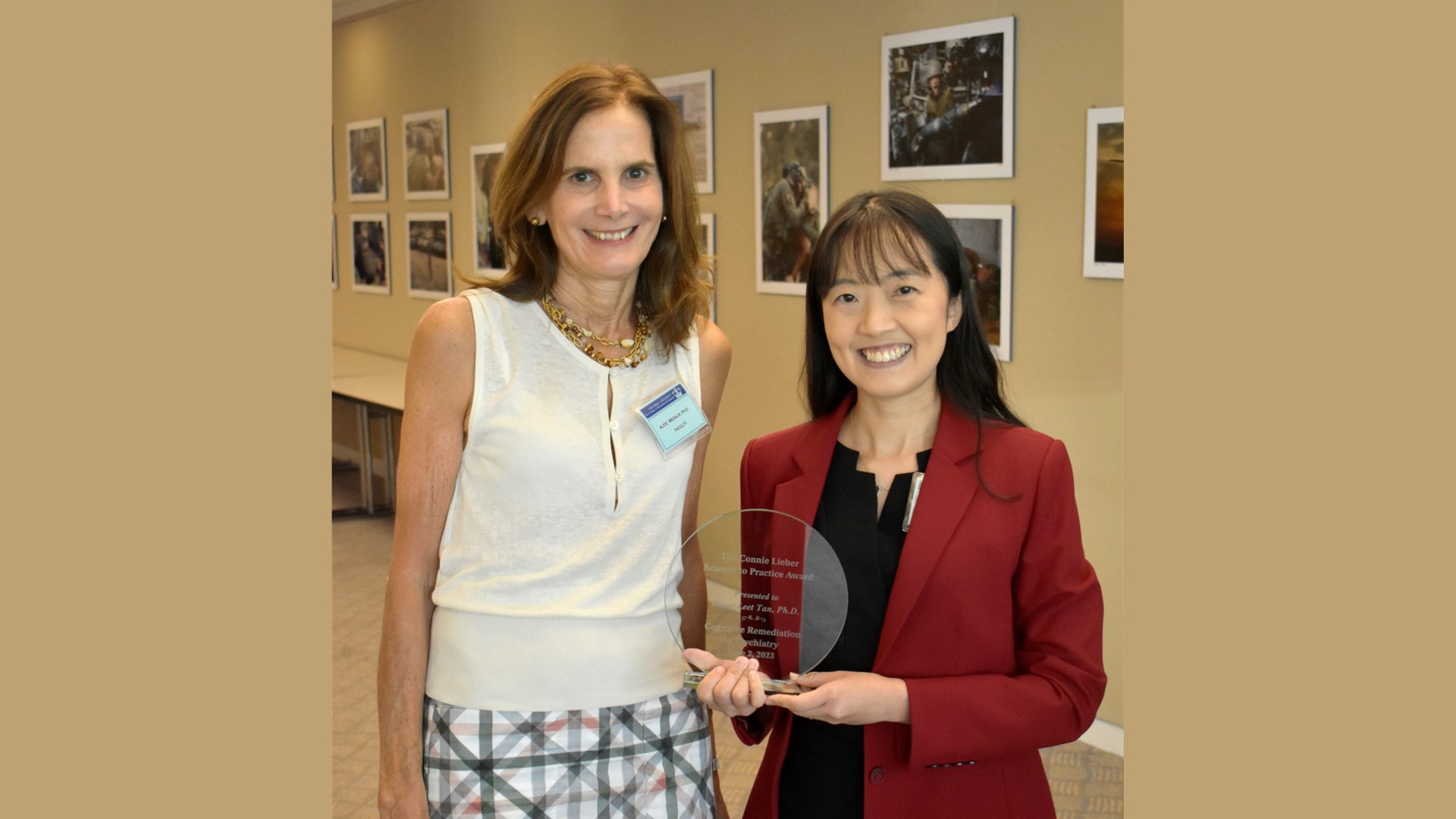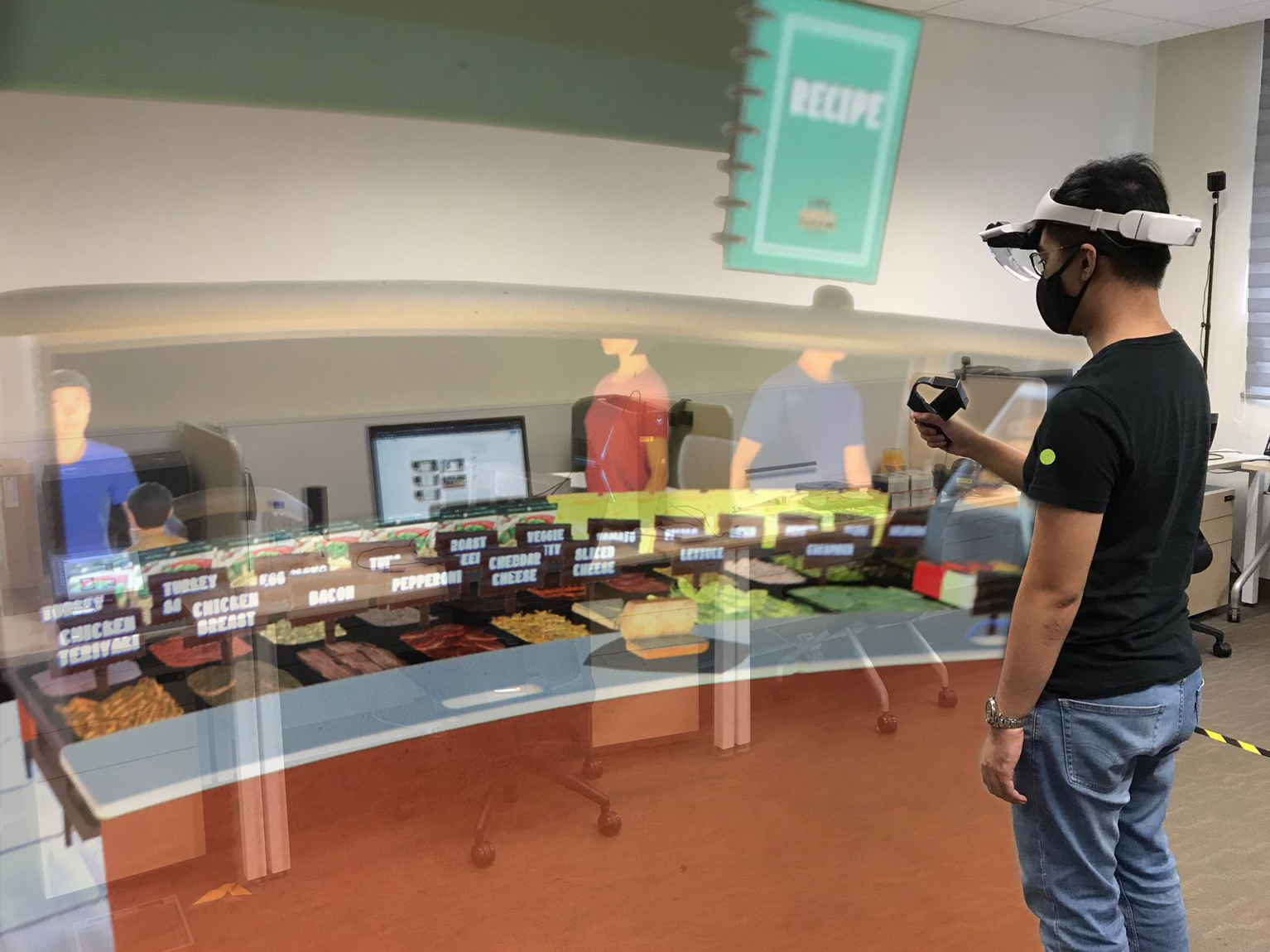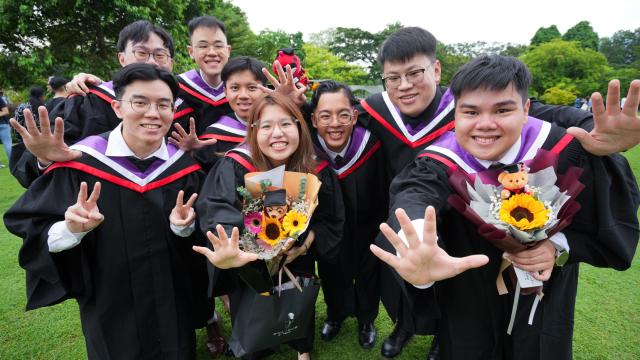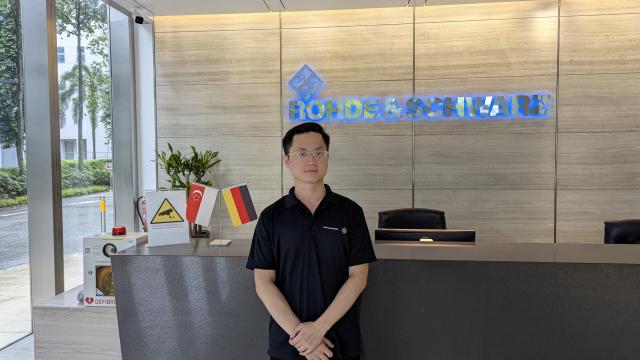Associate Professor Tan Bhing Leet has lived and breathed cognitive remediation research and practice for the past 15 years. On 2 June 2023, she received the 2023 Connie Lieber Science to Practice Award for Cognitive Remediation in Psychiatry. We speak to A/Prof Tan about her work in mental healthcare and what this award from the United States means to her.

A/Prof Tan Bhing Leet (right) received the 2023 Connie Lieber Science to Practice Award for Cognitive Remediation in Psychiatry from Prof Alice Medalia, Columbia University Irving Medical Center Vagelos College of Physicians and Surgeons, New York State Office of Mental Health, Lieber Recovery Clinic. (Photo: Prof Alice Medalia)
Cognitive remediation may not be a familiar term to non-mental health professionals, but for many of the patients that Associate Professor Tan Bhing Leet, Cluster Director, Health and Social Sciences Cluster, Singapore Institute of Technology and her colleagues have helped, it has made a real difference to their quality of life.
“Individuals with serious mental illnesses such as schizophrenia may have problems in information processing, memory and problem solving, which lead to a significant impact on their day-to day functioning,” explained A/Prof Tan. “Cognitive remediation is an intervention that helps these individuals overcome cognitive challenges in their daily lives, so that they can assume meaningful and fulfilling life roles.”
Trained as an occupational therapist, A/Prof Tan first came across cognitive remediation when she was working with patients suffering from traumatic brain injuries (TBI) in the late 1990s. When she moved on to work in the Institute of Mental Health (IMH) in 2004, the large number of schizophrenia patients she encountered there led her to wonder if a similar intervention could help them.
“By then, evidence was emerging on the impact of cognitive dysfunctions on individuals with severe mental illnesses such as schizophrenia. I thought: If we are already helping TBI patients address their cognitive problems, why can’t we develop something to help individuals with schizophrenia to improve their lives too?” she recalled.
Intrigued by the possibilities, she deep-dived into cognitive remediation, searching out international research in this area and collaborative opportunities with various clinician-scientists to learn more, and develop interventions for adults with schizophrenia and other serious mental illnesses.
A Passion-fuelled Career
A/Prof Tan’s occupational therapy career in the area of mental health has provided her with opportunities to work with government agencies, clinicians, patient advocacy groups, researchers, and community partners in building a supportive ecosystem for persons recovering from mental illness.
Her choice of occupational therapy as a career can be traced back to as early as her post-junior college days, when she interned at IMH. “I was inspired by how the occupational therapists there effectively applied knowledge from the fields of medical sciences and social sciences. They helped patients in a holistic manner to regain their functioning and lead meaningful lives.”
Cognitive remediation therapists utilise a diverse range of tools to assist patients. This includes computer-based software games and other activities aimed at enhancing cognitive skills. Additionally, they help patients acquire strategies to overcome daily challenges that resulted from cognitive impairments.
As a result, her work in improving the research and practice of cognitive remediation led to her winning the 2023 Connie Lieber Science to Practice Award for Cognitive Remediation in Psychiatry.
In pursuit of increasingly effective rehabilitation modalities, A/Prof Tan has started experimenting with immersive technology such as augmented reality (AR).
“Immersive technology such as AR enables patients to interact with virtual characters and objects in a three-dimensional environment. Based on my pilot study, participants are showing encouraging results. I hope to further investigate the effectiveness of cognitive remediation with adults with intellectual and developmental disabilities,” she shared.

For A/Prof Tan’s current research, she employs immersive technologies such as AR to help adults with intellectual disabilities practise life skills in a safe, virtual setting. (Photo: A/Prof Bhing Leet)
A Rewarding Journey
As a mum to a 14-year-old boy with autism spectrum disorder (ASD), A/Prof Tan leads a fulfilling life balancing teaching, research and family commitments. It has been an insightful parenting journey for her, and she enjoys a close bond with her teenage son.
Beyond her responsibilities at SIT, A/Prof Tan sits on various committees in the Ministry of Health, as well as social service organisations such as Brahm Centre, the Movement for the Intellectually Disabled of Singapore (MINDS) and AMKFSC Community Services. She was also involved in international projects, such as those led by the World Health Organisation Development Group in Schizophrenia, to develop the Package of Interventions for Rehabilitation (PIR) for individuals with schizophrenia.
When asked about her wishes for Singapore’s mental health services, A/Prof Tan shares that she hopes to see more facilities, resources and manpower devoted to psychiatric rehabilitation for persons with serious mental illnesses. “Even in the face of serious mental illnesses, individuals possess untapped strengths that deserve recognition. By empowering and supporting them, we can help them lead lives filled with purpose and meaning,” she highlighted. In fact, she has recently received a grant from Lew Foundation to set up cognitive remediation programmes in community mental health facilities and research on their clinical effectiveness.
On her work and the recognition it has received, she is quick to pay tribute to the many renowned and illustrious clinician-scientists with whom she has had the opportunities to work with, as well as mental health service users who have given her valuable insights. She said, “It has been an extremely rewarding journey for me. Winning this award will spur me to develop better interventions to benefit and support persons with mental illnesses living in the community.”















![[FA] SIT One SITizen Alumni Initiative_Web banner_1244px x 688px.jpg](/openhouse2025/sites/default/files/2024-12/%5BFA%5D%20%20SIT%20One%20SITizen%20Alumni%20Initiative_Web%20banner_1244px%20x%20688px.jpg)


